
Posted by Google Developer Studio
Today is International Women’s Day and we’re kicking off the celebration with a profile series featuring 20 tech trailblazers who have made significant contributions to the developer community. Many of the women we spoke to work directly with some of our educational outreach and inclusivity programs like Google Developer Groups and Women Techmakers, while others are Google Developers Experts or Googlers who do amazing work around the globe. One thing they all have in common is a dedication to making the developer community more approachable and inclusive for generations of women to come.
Read the interviews below to learn more about these amazing individuals whose passion and drive contribute to a better workplace and world.
We’re proud to celebrate #IWD2020 with them.
Garima Jain
Bengaluru, Karnataka, India ??
Android GDE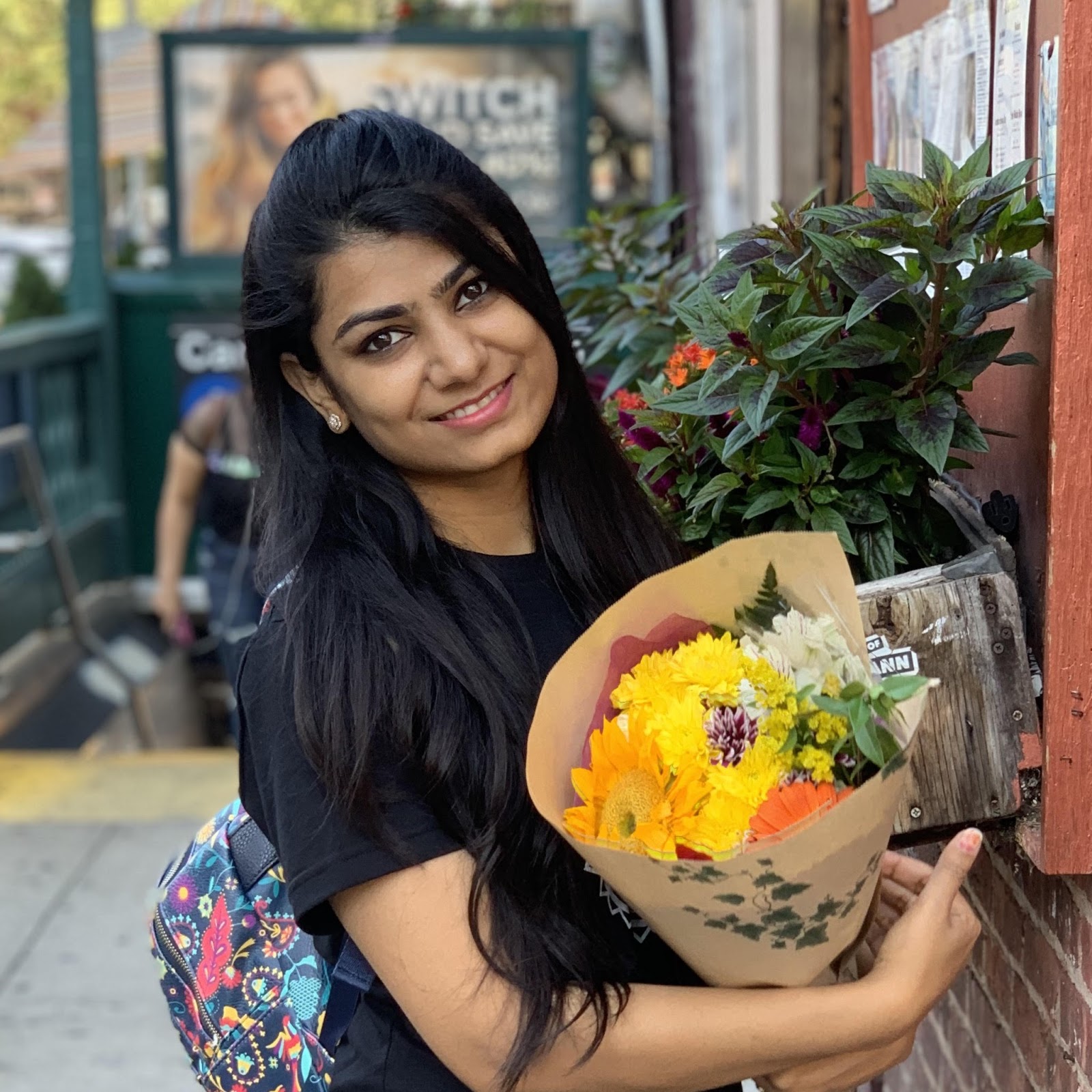
Photo of Garima Jain
Tell us about something you’re working on?
I am currently working on learning OpenGL for my next task on Over’s Android application, i.e. porting image filters to use OpenGL. Last time, when I implemented filters, I used RenderScript with Lookup Tables (LUTs), which was an educational journey in itself. The team recently migrated to use OpenGL for some other features on the application and I am excited to learn and apply it to port image filters. This could then be extended and will act as a building block for video filters in the future. Personally, I am exploring Kotlin Multiplatform (KMP) as I believe multi-platform is the future and looks quite promising for it.
What is one tip you would give your fellow women developers or developers in general?
My suggestion to fellow developers is to believe in yourself and focus on positive things. The world is full of both enablers and disablers, do what is best for you :)
Do you have any special interests, hobbies, or other fun facts you’d like to share?
I love watching TV shows, dancing, and playing basketball. Recently, I have a new hobby of creating and sharing videos on TikTok :P
Moyinoluwa Adeyemi
Lagos, Nigeria ??
Android GDE, Women Techmakers Ambassador, GDG Lagos
Photo of Moyinoluwa Adeyemi
Tell us about something you’re working on?
I’m currently preparing to give two talks. The first one will introduce two programming concepts to beginner Android developers. I’ll also teach them how to build a portfolio which will come in handy when they are job hunting. The other is a Keynote Address for a developer festival focusing on my journey to becoming a GDE.
What is one tip you would give your fellow women developers or developers in general?
Keep learning. That’s probably the only task that’ll remain constant throughout the span of one’s career.
Do you have any special interests, hobbies, or other fun facts you’d like to share?
Ich lerne Deutsch and I run marathons for fun.
Amanda (Chibi) Cavallaro
London, United Kingdom ??
Assistant GDE,
Women Techmakers Ambassador, GDG London
Photo of Amanda (Chibi) Cavallaro
Tell us about something you’re working on?
I’ve been currently working on presentations about Actions on Google, Firebase and web technologies to give presentations and share the knowledge.
What is one tip you would give your fellow women developers or developers in general?
If you’re a beginner in tech, one thing I wish I knew before is how to study, model and understand the problem and then try to code it - ask ‘why?’ and ‘what if?’. To practice as much as I could. Not just read books and other resources but to challenge myself into practising more.
Do you have any special interests, hobbies, or other fun facts you’d like to share?
I’m an aikidoka and practicing martial arts helps me both physically and mentally. I’ve also created an action about aikido you can check it out here.
Eliza Camberogiannis
Utrecht, Netherlands ??
Assistant GDE, Women Techmakers Ambassador, GDG Netherlands
Photo of Eliza Camber
Tell us about something you’re working on?
As I work for a creative tech agency, most of the apps and tools we develop are under NDA, so, unfortunately, I can't share something specific. I am lucky enough to work somewhere I have the chance to play with all the different Android and AoG SDKs, and not only! From pilots to doctors and from athletes to anyone that takes a bus, seeing something you've built making someone's life easier or better is priceless.
What is one tip you would give your fellow women developers or developers in general?
To ask themselves every day: if not you, then who? Sometimes we assume that someone that "knows better" will reply to that Stackoverflow question; that someone else can give that talk because "I don't have something interesting to say"; or that someone else will raise their voice about the lack of inclusion in the tech world because "what do I know about this"? And at the end, we end up with dozens of unanswered questions, or only a handful of people talking about diversity, because everyone made the same assumption.
Do you have any special interests, hobbies, or other fun facts you’d like to share?
I'm a person with 100 hobbies! I get easily bored so I try to learn and do as many things as possible. One day I'll be learning how to knit, the next how to box, the other one how to decorate cakes and it goes on and on. The only two hobbies that I have since I can remember myself are books and puzzles.
Evelyn Mendes
Rio Grande do Sul, Brazil ??
Firebase GDE, Women Techmakers Ambassador
Photo of Evelyn Mendes
Tell us about something you’re working on?
Today I am a mobile architecture consultant and software engineer, helping my team improve the software we develop, both in the back-end and front-end and, of course, implementing Firebase in mobile applications.
What is one tip you would give your fellow women developers or developers in general?
For women, never give up. I know, sometimes it's hard to wake up every day and fight something that never seems to end, facing people who never appear to learn that we just want a place to work like anyone else without worrying about harassment, sexism, prejudice or other kinds of discrimination. Together we will end these places and create more and better places, not just for women, but for all people, because I believe this is equity, this is the future, and we just want to be respected, happy and welcome where we work.
Always remember, we are together, we fight together, we win together! <3
Do you have any special interests, hobbies, or other fun facts you’d like to share?
I always pay attention to what happens in the IT world when it comes to Trans issues and about how companies and people are dealing with it. I work a lot for inclusion and diversity. After all, for me, it's not just values and attitudes. They are part of my life, my struggle, and represent who I am.
I love to find new ways, new technologies, to teach people the things I know, and even express myself better to make the learning experience more pleasurable.
I don't know if I have a fun fact. I consider myself so boring. I spend most of my time in front of the computer or watching series, or, of course, defending my girlfriends on the internet =D
Niamh Power
Wrexham, United Kingdom ??
Firebase GDE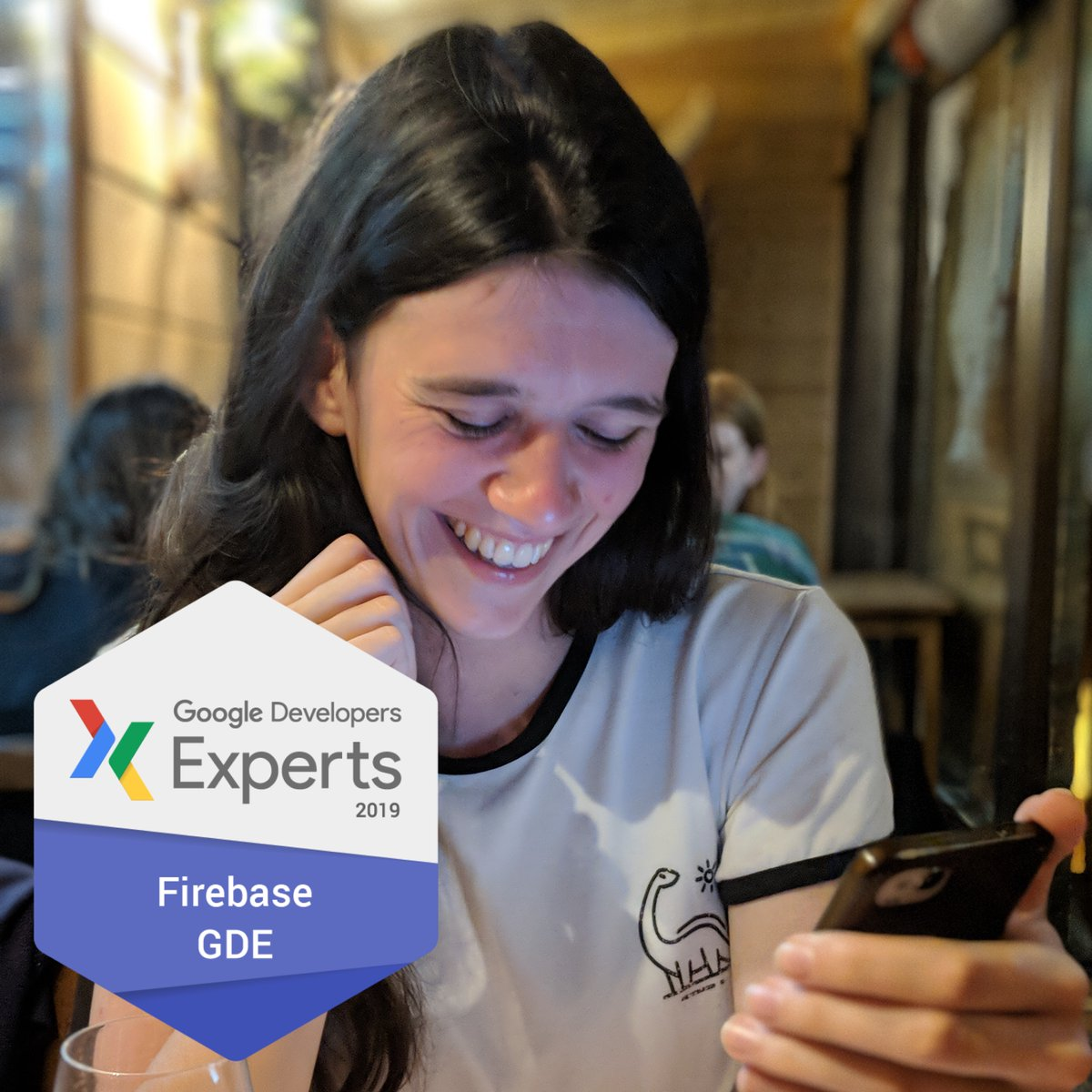
Photo of Niamh Power
Tell us about something you’re working on?
I currently work at the bank, Monzo, in the UK. Mainly on iOS, but occasionally on Android tasks that pop up too. I’m in the borrowing team, so I work on the flows for applying for a loan, managing it, and making the experience as delightful as possible. We’re also working on some new tools to help our users understand their credit scores, which is really exciting.
What is one tip you would give your fellow women developers or developers in general?
I think a tip that I would give would be to never be afraid to be wrong and to ask questions. I spent a lot of time in my first few years worrying about what others would think, which only slowed down my own development. Another one would be to get involved in the community side of things - pursuing the GDE program. Speaking and participating in events helped my networking massively and it’s really boosted my career progression.
Do you have any special interests, hobbies, or other fun facts you’d like to share?
I work remotely, living in North Wales, so I get to go on hikes and mountain bike rides straight after work or even at lunchtime. Working in an industry which offers such flexibility is fantastic and not having to commute is such a game changer! I’ve also just returned from a month long skiing holiday in the alps, and hoping to go back again for three weeks in the summer for some mountain biking!
Joannie Huang
Taipei City, Taiwan ??
#Flutterista
Photo of Joannie Huang
Tell us a bit about something you’re working on?
I’m now mainly working on the EdTech, teaching kids coding like Scratch and Python basics. I enjoy cultivating a new generation with tech ability through my computer science background. I've also run the Flutter Taipei with some passionate female developers since 2018 and just officially established the local branch in 2020 in order to encourage people to start using/learning Flutter!
What is one tip you would give Flutter developers?
Flutter has a strong and friendly community around the world. I would recommend searching meetup.com to see if there are any local workshops in your city. And just walk in to meet people! People always tell us that following the examples on the flutter.io is a good way to start.
Do you have any special interests, hobbies, or other fun facts you’d like to share?
I love walking in the alleys in Taipei and seeing the combination of old and modern. You might discover unique coffee or noodles from a generational street vendor. You won’t get bored while living in Taipei, a small but energetic city.
Nilay Yener
Sunnyvale, United States ??
#Flutterista, Program Manager
Photo of Nilay Yener
Tell us a bit about something you’re working on?
I work for the Flutter Developer Relations team as a Program Manager, specifically working on community programs. Community is an important part of Flutter. The goal of our community programs is to build, support, and foster the communities around Flutter and make the Flutter developers successful. Some of the programs I work on are, Flutter Google Developer Experts (GDEs) and Flutter meetups.
What is one tip you would give Flutter developers?
I encourage Flutter developers to contribute to Flutter. This has many benefits like improving the technology you work with, as well as improving your existing skills, meeting other people and giving back to the community. Flutter is an open source project and there are many ways to contribute. Flutter has a great team that welcomes everyone to join the project. You are very welcome to contribute to Flutter's code via pull requests, filing issues on Github, adding to documentation, or contributing to packages and plugins. You can help other people by asking questions in the chat channels. You can join Flutter's community programs, be a GDE, and give talks or run a Flutter meetup in your city to help other developers locally.
Do you have any special interests, hobbies, or other fun facts you’d like to share?
Before joining Google, I was one of the Google Developer Groups organizers and ran a Google meetup as a "hobby". Years later, I joined Google and now Google pays me for what I did as a hobby.
Shoko Sato
Tokyo, Japan ??
GDG Tokyo Lead, Women Techmakers Ambassador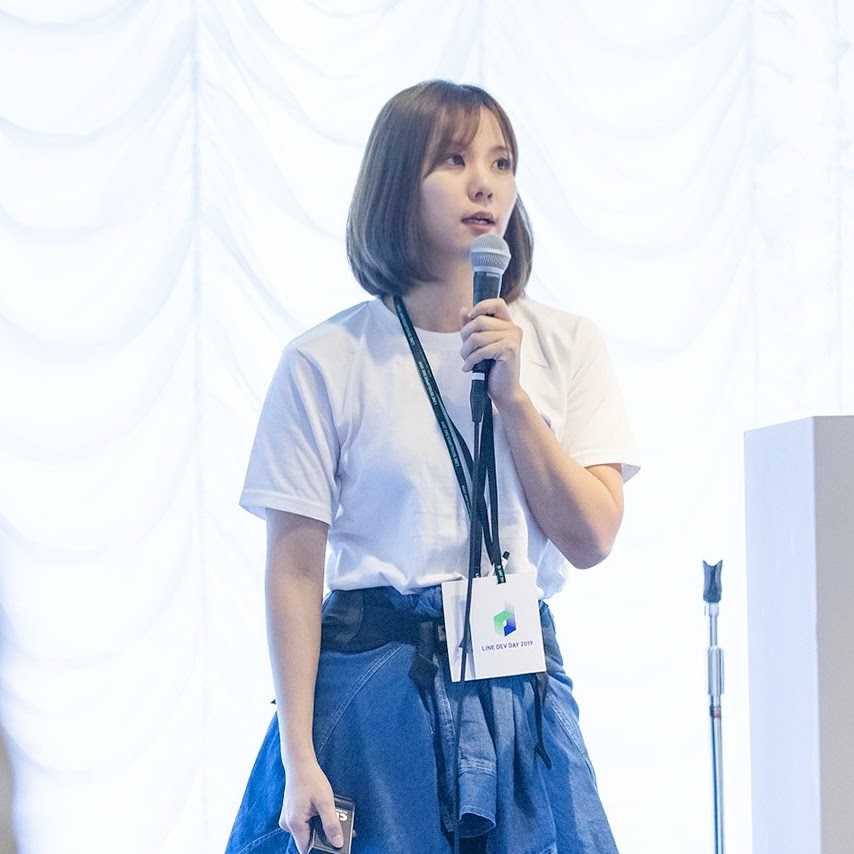
Photo of Shoko Sato
Tell us about something you’re working on?
Hi! My name is Shoko, I'm one of three organizers of GDG Tokyo and I host various types of meetups, hands-on workshops, codelabs, and tech conferences. I was also involved in the management of Women DevFest Tokyo which focused more on the career of women engineers. I like promoting activities that support women in different industries related to IT as an engineer. I feel that our tech conferences and others need to be gender-balanced. To achieve this, I have been working to arrange a daycare center at the venues, share information on events to ensure psychological safety before the event, increase the number of women involved, and focus on creating easy access to the event. I believe an event that women can easily participate in can be one, where anyone, regardless of being a man and a woman, is welcomed. Therefore, I am taking the initiative to create a community where people can easily join.
In my private time, I spend a lot of time planning and going to activities for GDG Tokyo. Professionally speaking, I actually work in Developer Relations at an IT company in Tokyo to support engineers; including technical public relations and tech conference management. I would like to support both the minority and majority, regardless of gender, age, nationality, corporate history, and all types of attributes and layers, working to create a place where each one of engineers can shine.
What is one tip you would give your fellow women developers or developers in general?
You don't need to compare gender, age, nationality, company history, career, and so on to others.
"I'm sure you’re doing great! You should have confidence and believe in yourself."
If there are 100 people, there are 100 ways of living. It may be important to look for a role model thinking, "I want to be like that person in the future." You don't have to think you are inferior, compared to others. What really matters to you? It’s that “you have confidence and you believe in yourself.”
I would say you should work on what you like with confidence. And have a diverse group of friends. If you have any concerns, your friends will help you.
Do you have any special interests, hobbies, or other fun facts you’d like to share?
I spend a lot of my time and work planning activities related to "engineers’ empowerment." The purpose of those activities is different but the basic idea is the same. I have experienced many kinds of jobs and setbacks before. They often told me in the past that life would be difficult because I’m a woman, so I constantly wished I was born as a man. It was an unpleasant experience and I do not want the next generation to experience that.
A lot of people see things in their culture following their experiences, so I think it's inevitable that there is an unconscious bias. This is why I would like to change that bias. I am keen to create organizations and communities where a wide variety of engineers can spend time together. I will continue to work in such a manner so that my work and my personal life can be linked to different activities, leaving eventually a positive impact on the entire IT industry.
Neem Serra
Missouri, United States ??
Women Techmakers Ambassador, GDG St. Louis Lead
Photo of Neem Serra
Tell us about something you’re working on?
I just finished working on a chapter for the Swift For Good book! All revenue from the book goes to Black Girls Code. I wrote my chapter on extensions in Swift, and examples of how a mommy class would interact with a baby class. I plan on writing more things in the future that use real-world examples to make complicated technical topics more understandable.
What is one tip you would give your fellow women developers or developers in general?
Find a safe group of friends that will act as your board of advisors and help you grow towards your best self. Some days, it feels like there can only be one person that can succeed, but it's not true! Every time you feel the urge to tear someone down, try to instead find someone to help out instead.
Do you have any special interests, hobbies, or other fun facts you’d like to share?
I thought that I would have to take a step back after having my baby, but I've learned that I've become laser focused on doing what I want to do. I was able to write a new technical talk with a mommy class learning how to handle a baby class and I even brought my baby on stage while giving the talk at a conference.
Lynn Langit
Minneapolis, United States ??
Google Cloud GDE
Photo of Lynn Langit
Tell us about something you’re working on?
I have been contracting with bioinformatics research groups, providing guidance and artifacts as they adopt public cloud for analysis.
Projects included reviewing, creating and delivering cloud pipelines and training materials. Clients include The Broad Institute, CSIRO Bioinformatics and Imperial College of London. As part of this work, I created an open source course on GitHub `GCP-for-Bioinformatics'.
What is one tip you would give your fellow women developers or developers in general?
Build and iterate often. Get feedback from actual customers. I also say this as `MVP-often`. For my team, this has meant building minimum viable genomics pipelines. I wrote about one example of this, using the `blastn` analysis tool, on Medium.
Do you have any special interests, hobbies, or other fun facts you’d like to share?
I learned Calculus at age 51 from Khan Academy and 3Blue1Brown (Grant Sanderson). I love math.
Daniela Petruzalek
London, United Kingdom ??
Google Cloud GDE
Photo of Daniela Petruzalek
Tell us about something you’re working on?
I’m currently working on a follow up project to my Pac Man from Scratch tutorial. I’ve built this tutorial to teach the Go programming language using game development as a background. Now the next phase will be to make a second game that will be used to teach about cloud technologies and streaming using WebRTC.
What is one tip you would give your fellow women developers or developers in general?
Make a list of the things you hate and study those, and try to understand them to the best of your capabilities. The things that we love are usually easy to learn, but the things that we hate are our weaknesses. You don’t need to become an expert in any of them, but by just understanding you will be able to overcome your weaknesses and maybe even start to love them, at which point they become less of your weaknesses and start compounding to become another part of your strengths.
Do you have any special interests, hobbies, or other fun facts you’d like to share?
I really love video games, and they are the main reason I’ve started my career in IT. I never became a game developer, but I really like how games challenge you to solve cool problems while also allowing your creativity to run free. Nowadays I’m slowly starting to introduce game development as one of my hobbies and I still dream of someday publishing my own indie game. When not working on game development, I’m really into playing classic games from the 8 and 16-bit era.
Katerina Skroumpelou
Athens, Greece ??
Google Maps Platform GDE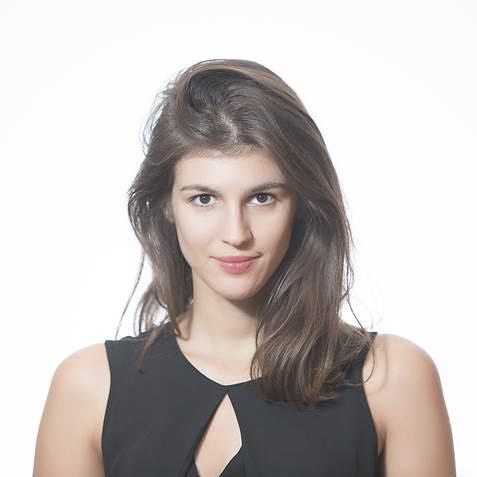
Photo of Katerina Skroumpelou
Tell us about something you’re working on?
Right now, I'm working on an enterprise application using Angular and the Google Cloud. I usually have a side project running, and at the moment my side projects include experimenting with features of the Google Maps Platform!
What is one tip you would give your fellow women developers or developers in general?
I don't know if that feeling exists because I am a woman, or if everyone feels the same, but here it goes: I have most usually worked in teams where there are no other women developers. So I have always felt like I have to push myself and constantly work harder to prove I am worthy of that position "despite being me/despite being a woman". Well, don't do that. Work hard and push your limits if you want to and if it makes you happy. But do it for yourself, if you want to. Don't do it for others. Nobody is in any position to judge you or measure you or question your worthy-ness.
Do you have any special interests, hobbies, or other fun facts you’d like to share?
I love walking and hiking. It clears my mind, and it's one of the few places I really feel "at home". I also like to pole dance, and I have a quest to visit as much of the world as I possibly can. I have an actual paper map, and I pin actual metallic pins on it with all the places I've visited! Fun fact, though, I've lived in the same neighbourhood for all my life, with cats all around me.
Kristina Simakova
Oslo, Norway ??
Google Maps Platform GDE
Photo of Kristina Simakova
Tell us about something you’re working on?
I have recently started working on a side-project: wall decoration AR app. When I moved to a new place, I was struggling with trying to imagine how and where I should place wall decorations, so I hope to solve it with AR.
What is one tip you would give your fellow women developers or developers in general?
Be an expert in your field but keep an eye on other technologies. Challenge yourself, experiment and keep learning. Are you an Android developer? Do Flutter Codelabs, learn about actions for Google Assistant.
Do you have any special interests, hobbies, or other fun facts you’d like to share?
Fun facts:
I have been on a research expedition for 7 days on an icebreaker ship somewhere between Greenland and Svalbard studying ice :)
I made the “Around the World” trip alone.
Hobbies: travel, reading stories about startups, trying to cook Asian cuisine, making cakes when I cannot solve a problem in my code.
Moonlit Beshimov
Mountain View, United States ??
Partner Development Manager, Google Play Games, Google
Photo of Moonlit Beshimov
Tell us about something you’re working on?
I am a Business Development Manager on Google Play's Games business development team. My baby brother thinks that this means that I can play mobile games all day long, which is half true. :) I partner with the best-in-class mobile game developers to help them grow their businesses on Google Play, working together on new games' go-to-market strategies as well as evolving their business models and monetization designs. Representing the world's largest mobile gaming platforms, I often share market and industry level insights that help all developers grow. At the same time, representing the complex ecosystem of mobile game developers, I work with Google Play's product teams to ensure developers' feedback, pain points and needs are addressed by us!
In the past two years, I've been leading a global initiative to boost growth and adoption of a recent monetization innovation in the mobile gaming industry: in-game subscriptions. I partnered with the early innovators to teach other developers, and also consulted developers on how to incorporate the new model into their existing design. Rising tide raises all boats. I love my job because even though the mobile gaming industry is competitive, there are tons of opportunities to learn from each other, build on each other's ideas, innovate and grow together. As leaders of the industry, we also discuss difficult questions such as digital well-being in the context of mobile gaming. More to come on this, let me know if you have ideas!
What is one tip you would give your fellow women developers or developers in general?
Your most valuable asset is your unique perspectives and crazy ideas. Women developers are still the minority in the workforce, but women consumers are a major business opportunity. Your ideas and points of view, especially the ones that no one else seems to have thought of, are the ones that will make the biggest difference. So confidently offer your most unique perspectives and craziest ideas, speak up. Be brave, not perfect!
Do you have any special interests, hobbies, or other fun facts you’d like to share?
I love challenging myself with hobbies that I'm not naturally good at, such as public speaking and athletics. I've been doing Toastmasters to overcome my fear of public speaking. I shared this journey in my recent TEDx talk. I was also that chubby kid growing up, so I signed up for Tough Mudder, Spartan races with my friends and colleagues (peer pressure is the best motivator to work out regularly!) and picked up rock climbing. However, mostly recently, my new found love is my three-months old daughter! Motherhood is probably the most challenging activity I've ever done. Hats off to all the working moms out there!
Vesna Doknic
London, United Kingdom ??
Strategic Partner Manager, Google Play - London, Google 
Photo of Vesna Doknic
Tell us about something you’re working on?
I am currently working as a Strategic Partner Manager on Google Play, helping developers from all over Europe be more successful on Android. I have been in the mobile space for most of my career, working in Mobile Product Management before joining Google.
What is one tip you would give your fellow women Product Managers or Product Managers in general?
Product management work is extremely cross-functional, and it pays to remember that relationships are everything. Making sure all the pieces fit together calls for master planning and lots of trust, so make sure you invest and nurture your key working relationships.
Do you have any special interests, hobbies, or other fun facts you’d like to share?
My other great passions in life are food (I run a culinary blog and have a robust appetite), cinema and its history (Mark Kermode = god), music and festivals (but sadly not the muddy kind), and corgis (especially my own - Taxi. He is a good boy.)
Alexandrina Garcia-Verdin
Sunnyvale, United States ??
G Suite Developer Advocate, Google
Photo of Alexandrina Garcia-Verdin
Tell us about something you’re working on?
I am interested in making the word "developer" be more inclusive of citizen developers and creating samples, tutorials, videos, and hopefully a podcast for that audience. These are folks like myself, who do not come from traditional computer science backgrounds but love learning about how to build apps as a hobby or learn from tinkering with projects at work. You see, a "developer" is someone who builds apps or automations on a computer, sometimes it's with code and sometimes it's with programs that abstract code, but people have a strong association with the word as only meaning "coder" exclusively. What that does is it creates limiting beliefs about what content to explore because they see articles with the title "developer" included and think "oh that's not for me", omitting content that is indeed for them. I am actively interested in changing the conversation to make the "developer world" a more inclusive place where anyone who builds SQL queries, dashboards, workflows, or code -- all understand they are developers aka "builders" on computers. I believe this would also make content accessible to more diverse audiences. Google has created so many amazing products, and with user experience always in mind, I think it's important for everyone to feel comfortable reading what's out there before making a decision on whether it's for them, because I have personally found myself building all types of things because of the sheer ease of use of the products, and this is thanks to opening myself up to learning from all developer content.
What is one tip you would give your fellow women developers or developers in general?
My peer Jennifer Thomas upon returning from her first coding bootcamp said it best. She learned there is no "one way" of doing things, and that "every person builds things in their specific area of expertise." I think this is a powerful reminder that "I am enough" whenever we are haunted by imposter syndrome. I strongly believe that conversations like these, where we expose limiting beliefs and create safe spaces for vulnerable and empowering exchanges, are the biggest accelerators to making developer communities more diverse. When people feel like they can be themselves in their own happy capacity as a builder (without expectations imposed), we will rapidly help each other to thrive.
So please keep talking and sharing about your learnings, it helps support everyone on their journey.
Do you have any special interests, hobbies, or other fun facts you’d like to share?
I am extremely passionate about everything I can learn on regenerative ecological design, which is a framework for living in a harmonious way with our planet by optimizing my habits (inputs and outputs). My top three subjects at hand are being plastic free (zero waste), growing food via permaculture methods, and building cob homes (earthquake and fire proof earthen homes). As such l took a week long course to learn how to build a home out of cob (a monolithic structure made of clay, sand, and straw) at Quail Springs (a nonprofit in Santa Barbara). I am in love with how accessible it makes home building, and am working on making that content available on YouTube for my teachers Sasha and Johno. I am also volunteering to modernize a nonprofit's website that has written building codes for cob structures called CobCode.org. Their work is amazing, and I wish to support the movement in whatever way I can so more people can legally build healthy and affordable homes.
Follow updates and content by AGV on Twitter at @TechAndEco
Anu Srivastava
New York City, United States ??
G Suite Developer Advocate, Google
Photo of Anu Srivastava
Tell us about something you’re working on?
G Suite Solutions Gallery
I created a gallery for both Googlers and external developers to showcase how developing with G Suite solves real business problems. Our goal is to inspire new developers to create meaningful integrations to boost productivity and collaboration like team time management solutions and event planning, etc.
What is one tip you would give your fellow women developers or developers in general?
Find a mentor and create a strong network of developers in your community.
Do you have any special interests, hobbies, or other fun facts you’d like to share?
I used to be a dancer in a group that recreated pop music videos in local performances around the SF Bay Area.
Margaret Maynard-Reid
Seattle, United States ??
Machine Learning GDE, Women Techmakers Ambassador, GDG Seattle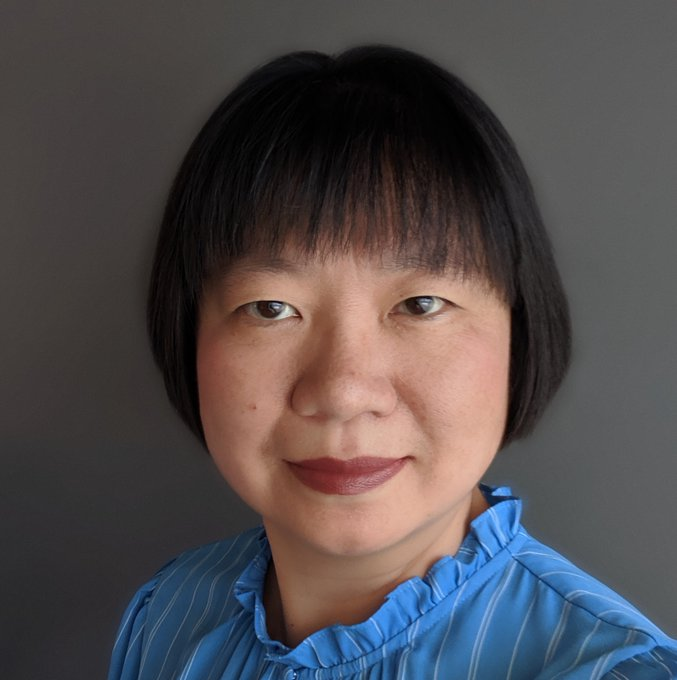
Photo of Margaret Maynard-Reid
Tell us about something you’re working on?
I recently curated an awesome-list of TensorFlow Lite models, samples and tutorials on GitHub. This is a project that could be very impactful for the TensorFlow community by helping those who want to implement their models on mobile and edge devices. I’m working on engaging the community to further expand the list. ML practitioners, engineers and researchers can contribute.
What is one tip you would give your fellow women developers or developers in general?
Stay curious and keep learning. My emphasis on continuous learning opens doors for me. It has helped provide the greatest opportunities to solve interesting problems with cutting edge tech.
Do you have any special interests, hobbies, or other fun facts you’d like to share?
Outside of work I write blog posts, speak at conferences, and lead tech communities. I’ve always wanted to study art - I recently started drawing and I absolutely love it! I’m excited about applying AI/ML to art and design.
Lesly Zerna
Cochabamba, Bolivia ??
Machine Learning GDE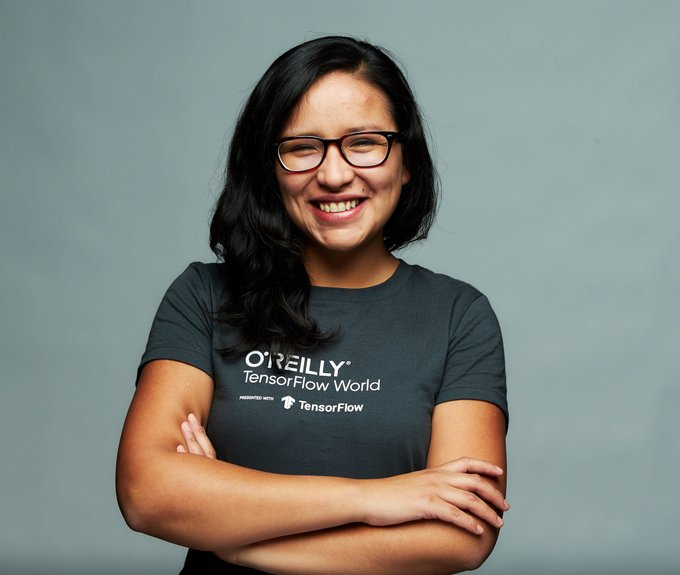
Photo of Lesly Zerna
Tell us about something you’re working on?
I am working on a project to get started with teaching machines to play and compose!
I was inspired by this book: "Generative Deep Learning" by David Foster.
I have loved music since I was a child! And since the first time I learned about Google Magenta, I wanted to learn more about teaching machines about music and art in general.
This is a great opportunity to get started with something a bit different from what I have done before, but one that helps me to combine my passion for technology and music.
What is one tip you would give your fellow women developers or developers in general?
Give it a try!
I think when you are new to something it is normal to be nervous or scared, but everyone should take that first step! It is not easy but it is rewarding. Either you learn or win!
Don't be afraid to try something with tech, just baby steps and you'll have fun!
Do you have any special interests, hobbies, or other fun facts you’d like to share?
Oh I love music, learning about tech and traveling to meet new cultures, people and landscapes. I love outdoor activities as well as staying home or being at a coffee place studying. Also, sharing knowledge and helping other people to find new perspectives to see the world.
_____________________________ Interested in becoming a part of the Google developer community? Here’s more information on the programs we’ve shared above:

The Google Developer Groups program gives developers the opportunity to meet local developers with similar interests in technology. A GDG meetup event includes talks on a wide range of technical topics where you can learn new skills through hands-on workshops. The community prides itself on being an inclusive environment where everyone and anyone interested in tech - from beginner developers to experienced professionals - all are welcome to join.
Join a Google Developer Group chapter near you here.
Apply to become a Google Developer Group organizer here.
Follow Google Developer Groups on Twitter here.
Subscribe to the Google Developer Groups YouTube channel here.

Founded in 2014, Google’s Women Techmakers is dedicated to helping all women thrive in tech through community, visibility and resources. With a member base of over 100,000 women developers, we’re working with communities across the globe to build a world where all women can thrive in tech. Our community consists of over 740 Women Techmakers Ambassadors across over 100 countries. These ambassadors are the north star of our movement. They are leaders committed to their communities, using Women Techmaker resources to build space and visibility so that all women could thrive in tech.
Become a Women Techmakers Member here.
Follow Women Techmakers on Twitter here.

The Google Developers Experts program is a global network of highly experienced technology experts, influencers and thought leaders who actively support developers, companies and tech communities by speaking at events, publishing content, and building innovative apps. Experts actively contribute to and support the developer and startup ecosystems around the world, helping them build and launch highly innovative apps. More than 800 Experts represent 18+ Google technologies around the world!
Learn more about the Google Developers Experts program and its eligibility criteria here.
Follow Google Developers Experts on Twitter here and LinkedIn here.






























